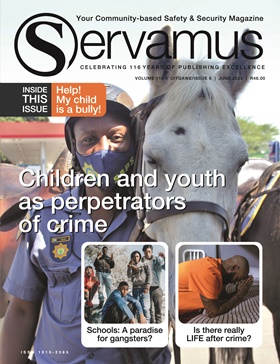By Kotie Geldenhuys
Each year, a large number of incarcerated offenders are released from South African correctional centres and returned to their families and communities. While many of them will continue with a criminal career and end up being incarcerated once again, there are a small number of them who successfully reintegrate into their communities.
South Africa has one of the highest recidivism rates among offenders in the world and faces significant challenges in terms of how this can be reduced. The rush to incarcerate and the focus on punishment rather than rehabilitation has been a longstanding issue and there is a need for more effective programmes and approaches to address the root causes of criminal behaviour (Murhula and Singh, 2019).
Rehabilitation
The rehabilitation model of the criminal justice system is based on the belief that criminal behaviour is caused by a complex interaction of factors, including social, psychological and biological factors. These causal factors can include unemployment, poor career training, poor mental health, low levels of education, substance abuse, unsatisfactory social life, inadequate housing, dysfunctional families and living in informal settlements. According to the rehabilitation model, individuals who commit crimes do so because of circumstances beyond their control. While they may make a conscious choice to break the law, this choice is not necessarily a matter of pure free will but can be influenced by their social surroundings, psychological development or biological makeup (Du Plessis and Lombard, 2018).
The primary goal of the Department of Correctional Services (DCS) is to reduce recidivism and promote public safety. This is done by addressing recidivism through programmes and services that aim to rehabilitate offenders that prepare them for reintegration into their communities. These programmes and interventions are designed to address the underlying causes of criminal behaviour and help offenders develop the skills and behaviour necessary to succeed upon their release from prison. However, there is a need to ensure that these programmes are effective and that they are tailored to meet the needs of individual offenders (Murhula and Singh, 2019).
******************************
[This is only an extract from an article published in Servamus: June 2023. The rest of the article confirms that it is not easy but possible, and give real-life examples of those who have managed to create a new life after prison. If you are interested in reading the rest of the article, send an e-mail to: This email address is being protected from spambots. You need JavaScript enabled to view it. or a WhatsApp or SMS message to: 078 712 1745 to find out what you need to do to acquire the article. Ed.]








